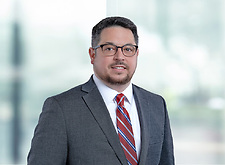In United States ex rel. Druding v. Care Alternatives, et al., 952 F.3d 89 (3d Cir. 2020), the Third Circuit reversed a district court’s decision that said objective falsity was required under the False Claims Act. There, the relators, who are former employees of the defendant hospice care provider, alleged that the defendants fraudulently billed Medicare and Medicaid by routinely admitting and recertifying inappropriate patients for hospice care. The relators’ medical expert reviewed forty-seven patient files and opined that the documents did not support certification of need for hospice in thirty-five percent of cases reviewed. The defendants’ medical expert offered a differing opinion, concluding that in each case a physician could have reasonably determined that the patient was eligible for hospice care. The Third Circuit rejected the district court’s adoption of the “objective falsity” standard and held that a difference of medical opinion is enough evidence to create a triable dispute of fact regarding FCA falsity.
Similarly, in United States ex rel. Winter v. Gardens Regional Hospital and Medical Center, Inc., 953 F.3d 1108 (9th Cir. 2020), the Ninth Circuit rejected the idea that the FCA requires a plaintiff to plead an objective falsehood. “A physician’s certification that inpatient hospitalization was ‘medically necessary’ can be false or fraudulent for the same reasons any opinion can be false or fraudulent. These reasons include if the opinion is not honestly held, or if it implies the existence of facts—namely, that inpatient hospitalization is needed to diagnose or treat a medical condition, in accordance with accepted standards of medical practice—that do not exist.”
Defendants in both of these cases filed petitions for writs of certiorari. See Care Alternatives v. United States ex rel. Druding et al., 2020 WL 5657690, No. 20-371 (U.S.); RollinsNelson LTC Corp. v. United States ex rel. Winter et al., 2020 WL 7356622, No. 20-85. (U.S.). In one line denials, the Supreme Court denied both petitions without offering any reasons.
These certiorari denials by the Supreme Court leave intact the Circuit Court split regarding objective falsity. For instance, the Eleventh Circuit, unlike the Third and Ninth Circuits discussed above, has adopted the objective falsity requirement. In United States v. AseraCare, Inc., 938 F.3d 1278 (11th Cir. 2019), the Eleventh Circuit determined that “a clinical judgment of terminal illness warranting hospice benefits under Medicare cannot be deemed false, for purposes of the False Claims Act, when there is only a reasonable disagreement between medical experts as to the accuracy of that conclusion, with no other evidence to prove the falsity of the assessment.”
Importantly, with this Circuit split left unresolved, health care providers will face differing levels of FCA risk depending on where the relator files the case. This is why it is crucial to retain counsel familiar with jurisdictional variations in FCA enforcement.

